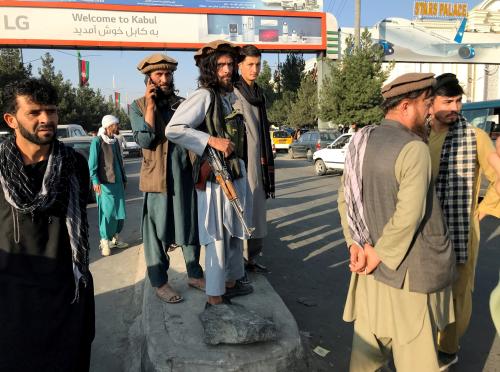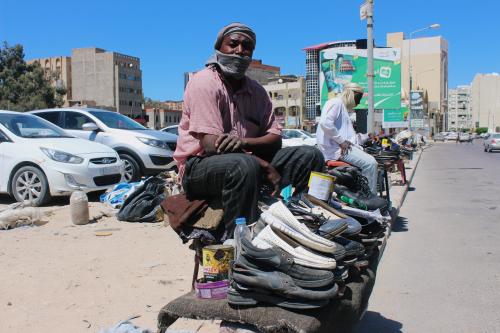The following statement was issued June 26, 2006 by the Representative of the United Nations Secretary-General on the Human Rights of Internally Displaced Persons, Dr. Walter Kälin:
“As a historically refugee-receiving country, Chad and its people have extended their generosity to those in need of international support and protection. Today, Chad itself faces a crisis of internal displacement which, when added to the fact that it already hosts more than 200,000 refugees from Sudan’s Darfur, is placing an overwhelming burden on the local population and support structures in the east of the country. Both refugees and internally displaced persons are at risk of violence by regular and irregular groups, as are humanitarian workers. While Chad and Sudan have suspended diplomatic relations over allegations that each hosts rebels opposed to the other’s government, the people of both countries, both the internally displaced and those who have fled across the joint border, are paying a terrible price. I urgently call on the Chadian and Sudanese authorities, and the international community, to provide protection to the area’s residents, Sudanese and Chadian alike.
“All human beings have the right to be protected against arbitrary displacement, including in the context of armed conflict, and international humanitarian law prohibits the deliberate targeting of civilians. This right is protected not least by the inclusion of forced displacement as a crime against humanity within the jurisdiction of the International Criminal Court.
“Despite these guarantees, in recent weeks, an upsurge of violence and theft by janjaweed militias has been the cause of mass displacement in eastern Chad. After three years of uncontained destruction in Darfur, the janjaweed have increasingly violated Chad’s border, initially pursuing refugees from Darfur and now targeting Chadian communities. The United Nations High Commissioner of Refugees has found these attacks to be increasing, systematic, and deadly. The conflict has intensified as some locals from neighboring tribes and villages take part in the attacks, acting on the belief that joining with the janjaweed groups will protect them from similar attacks.
“The result is that more than 50,000 Chadians have been displaced in a matter of months. Areas perceived as “safe” have become overwhelmed: in the town of Goz Beida, for example, the indigenous population of 6,000 has been joined by 14,000 Sudanese refugees and 11,000 internally displaced Chadians. This flight has occurred during planting season, placing those who survive the violence at a secondary risk of malnutrition and starvation in the coming months. And although international organizations have recently begun to review the protection and assistance needs of the internally displaced, to date IDP settlements and camps have received inadequate resources, leaving residents in unsanitary and unsafe conditions. As the rains have set in, isolating many regions, immediate redress of these conditions is essential.
“The increasing instability in the region, and threat to human rights and life itself, cannot be ignored by the international community. As a sovereign state, Chad has the primary duty and responsibility to protect those within its jurisdiction. Yet, when governments lack the capacity to meet their responsibility to protect and assist, the international community has the right to offer its help, and arguably the responsibility, to do so, in cooperation with national authorities. Recognizing that the crisis has outstripped its resources, Chad has requested assistance from the international community to improve protection. We must not turn our backs on this request, or to the thousands presently at risk. The recent Security Council mission and technical assessment of security in the region — which specifically considered the protection of civilians in Chad — is an important step forward.
“Accordingly, I call on all actors to take immediate action to halt the displacement, to assist those already displaced and to protect their rights. These significant undertakings should be supported by the international community. In particular I call on donor countries and international agencies to help Chad in meeting the shelter and subsistence needs of all affected populations.”


Commentary
UN Expert Calls on All Actors to Halt Forced Displacement in Eastern Chad
June 26, 2006